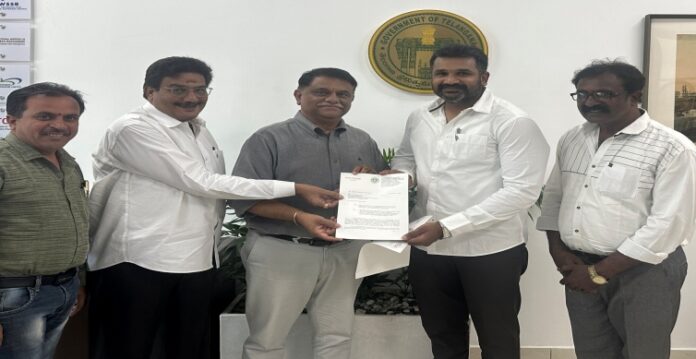In an appeal to the Municipal Administration and Urban Development Limited (MA&UD) Special Chief Secretary Arvind Kumar, Telangana State Mineral Development Corporation Limited (TSMDC) Mane Krishank has requested that Trimulgherry lake be protected from pollution.
He asked for the diversion of sewerage entering Trimulgherry Lake, as well as its complete rejuvenation and beautification.
Krishank stated in a letter to the Special Chief Secretary that Trimulgherry Lake was polluted by untreated sewage generated by the surrounding colonies, resulting in surface water pollution and inconvenience to locals. In addition to groundwater pollution caused by sewage entering the lake, the mosquito population has increased, and many people have been affected by waterborne diseases, he stated.
In addition, the TSMDC Chairman asked Arvind Kumar to relocate the Trimulgherry dump yard. The Secunderabad Cantonment Board (SCB) demolished the roof of the Gandhi Community Hall in Trimulgherry in 2016 to build a refuse-derived fuel (RDF) unit. However, the SCB abandoned the plans, and the site gradually devolved into a dump yard.
Krishank stated that elected officials and residents have asked the SCB authorities to relocate the dump yard, but in vain.
ReThink Day introduced by Telangana govt
ReThink Day is a new project the Telangana government has introduced to encourage the reuse and recycling of waste items in Urban Local Bodies (ULBs) throughout the state. The government’s overarching goal is to establish a sustainable “Reduce, Reuse, Recycle” (RRR) programme in ULBs, which includes this effort
Every Saturday from 8 am to 11 am, ULBs will participate in a variety of events as part of the “ReThink Day” initiative to spread the word about the RRR programme. To inform and involve the public, these initiatives will include ward-level talks on garbage management and recycling.
The RRR programme must be on the agenda of Self Help Group (SHG) meetings under the Municipal Administration and Urban Development (MAUD) department’s directive. Additionally, ULBs are instructed to guarantee the ongoing operation of permanent RRR Centres.
Records of used goods donated by citizens and recycling activities will be kept by ULBs. At the RRR centres, people can deposit things like plastic, used books, clothing, and shoes. Through partnerships with NGOs, start-ups, recyclers, and micro, small, and medium-sized companies (MSMEs), these goods will be repaired, repurposed, or recycled. The “ReThink knowledge hub” will support these collaborations.
(This story is sourced from a third-party syndicated feed. Raavi Media takes no responsibility or liability of any nature. Raavi Media management/ythisnews.com can alter or delete the content without notice for any reason.)


